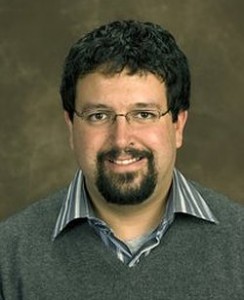
St. Louis may seem a bit too far away from Mexico to have had a serious impact on the outcome of the Mexican Revolution, but the city actually played an important role in the events that shaped the nation, according to Ignacio M. Sánchez Prado, PhD, associate professor of Spanish and Latin American Studies in Arts & Sciences at Washington University in St. Louis.
The journal Regeneración, which was one of the most influential publications in the intellectual history of the Mexican Revolution, also was edited in St. Louis.
“The reason why they came to St. Louis is because they were sheltered from persecution by the Mexican government (which hired a private detective named Thomas Furlong to this end) by an array of organizations, including the Western Federation of Miners and the Industrial Workers of the World,” Sánchez Prado said. “These ideas were fundamental for the construction of the ideology of the Mexican Revolution. They advocated social justice, workers’ organization, a questioning of the authoritarian structures of Mexican politics and the solidarity of Mexican workers with workers from everywhere else in the world. These ideas were in part shaped by the contact that they had in St. Louis with figures like political activist Emma Goldman.”
And the ideas are still relevant today, according to Sánchez Prado.
“Flores Magón remains a reference for many political movements advocating the same goals today in Mexico,” he said. “Movements like the Zapatista Army in Chiapas, the Yo Soy 132 student movement and the self-defense movements in Michoacán all replicate many of their ideas. Given that many Mexicans feel that the values of the revolution are threatened by recent governments, there has been a scholarly and intellectual revival of the Flores Magón, particularly thanks to anthropologist Claudio Lomnitz’ book on the matter.”
Sánchez Prado’s scholarly research focuses on Mexican literary, film and culture studies; Latin American intellectual history; neoliberal culture; and the use of canon and world literature theory in Latin American studies. He is the author of “Screening Neoliberalism: Mexican Cinema 1988-2012” (Vanderbilt University Press, 2014).
Mexican Independence Day is Sept. 16. The anniversary of the Mexican Revolution is observed in November.
Note to media: Sánchez Prado will deliver a talk titled “Exploring St. Louis’ Mexican Revolution Connection” at 7 p.m. Thursday, Sept. 10, at the Central Branch of the St. Louis Public Library, 1301 Olive St. He is available for interviews at isanchez@wustl.edu, or contact Julie Hail Flory for assistance at julie.flory@wustl.edu or 314-935-5408.